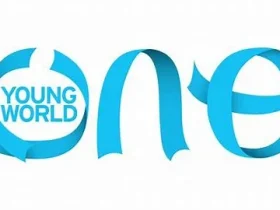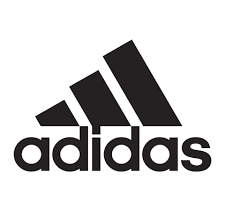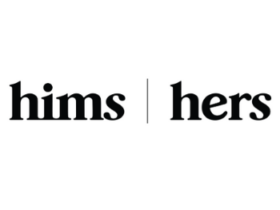In the business world, interviews are a lot like blind dates.
Employers sit down with potential employees and over the course of the meeting, both parties try to learn enough about each other to decide if working together is good idea or a bad idea…just without the awkward hug/kiss thing at the end…hopefully.
See…not so far off from our blind date scenario from earlier…but there is ONE big difference.
Did you know that companies do have those little cheat sheets on potential employees and that they do ‘pre-screenings’ before the offer to interview is even considered?
That’s right! They do.
Every single piece of information you send a company you’re applying to is going to be thoroughly looked at to determine your potential for compatibility, starting with your cover letter.
“But wait,” you say, “what’s a cover letter, and more importantly, why do I need to send one along with my resume?”
Don’t worry, we’re going to explain exactly what it is…and so much more.
In fact, over the course of this article, we’re going to discuss a number of things you’ll need to know in order to make your cover letter not only right for who you are and what you bring to the table…but tailor it so it’s absolutely perfect for your first blind date…er, we mean…the job you’re applying for
Before you learn how to write a cover letter, you first need to understand what it is!
A professional cover letter is a short, single page letter you should include with every application and/or resume you send out.
It’s a quick way for you to introduce yourself to an employer and gives them a taste of you…not just your skills (which they will get by looking at your resume.)
Not only does it act as an introduction, it will also let whoever is reading it (hiring managers) know exactly why you are sending them your information as well as potentially help open the door to future meetings…and interviews!
Remember, first impressions count…even when they’re on paper, so let’s make sure yours is as perfect as possible. You should start by downloading our “Perfect Cover Letter Cheat Sheet”, which will show you how to build your cover letter in quick, step-by-step format. Click here to download the cheat sheet now.
Here’s A Good Format Template
Your Name
Your Address
City, State, Zip
Your Best Contact Phone Number
Your Professional Email
Your Personal Branding Website
Date
Employer Name
Title
Company
Address
City, State, Zip Code
Dear Mr./Mrs. Last Name:*
PARAGRAPH 1: Because this is your opening paragraph, you want to make sure it’s strong and draws the reader in. Explain why you are writing. Describe the job you are applying for, including the position and job title.
PARAGRAPH 2: Now we move into the actual text of the letter. This is where you get to introduce yourself and tell your potential employer why you are qualified to do the job you are applying for. This is your chance to let them know what you have to offer and why your skills and knowledge are perfect for the position. Don’t forget to tailor based off your research!
PARAGRAPH 3-4: If needed, these are the paragraphs where you can explain away any concerns an employer might have about your ability to do the job. It’s also where you can share accomplishments , success stories, and any other bits of information that will help convince the hiring manager that they have to bring you in for an interview.
FINAL PARAGRAPH: This is where you wrap up your letter. Make sure to thank them for considering you for the job and let them know they should feel comfortable reaching out to you with any questions or concerns not addressed in your letter/resume. This is also the paragraph where you let them know how you plan on following up with them.
Finally, be sure to direct the hiring manager to your Your Personal Branding Website so that they are able to get a feel for who you are as a person. This simple step can land you way more interviews!
Sincerely (or any other closing comment),
Signature/Typed Signature
Your Personal Branding Website
*You want to always try to address your cover letter to someone specific. Unfortunately that information is not always available. If you find yourself writing a letter and unsure of who to address it to, use “Dear Hiring Manager,” or “Dear Recruiter.”
*Don’t use “To Whom it May Concern” or “Dear Sir/Madam” as those are considered outdated and you run the risk of offending someone. You can also call the company directly to ask to whom you should address your letter.
*In some instances you can completely forgo the opening salutation and just start with a subject line, but we suggest at least making an effort to find out who to address it to. It makes the letter much more personal and shows your dedication to the position.

Zzzzzz. Oh, sorry. Was I napping? Ugh what a snoozer!
 EXAMPLE OF A BAD COVER LETTER
EXAMPLE OF A BAD COVER LETTER
To Whom It May Concern,
I recently came across your job post looking for a Production Office Coordinator for the educational television series, “Wonder Kids.” I think my skills and experience would be a good match for the position and I am submitting my resume to you in the hopes of obtaining an interview.
For the past eight years I have worked as a Production Office Coordinator on a variety of other shows, providing crucial administrative support as well as maintaining and managing the day to day operations of a busy production office. I am familiar with all aspects of production including contracts, budgets, proper paperwork distribution, and travel coordination. I pride myself on my organizational skills as well as my ability to run an efficient staff of over 10 employees.
I am attaching my resume which outlines all my past work experiences as well as a detailed listing of my qualifications and skills. I look forward to the possibility of speaking with you about this position.
Sincerely,
Blanche D. Oatmeal
Although professional, this is a generic cover letter and if you ask me, pretty bland.
It reveals little about Blanche beyond the fact that she thinks she’s qualified for the job and that she’s been in the industry for over 8 years. A letter like this is the bare minimum when applying for a job…and you’re not the bare minimum.
Don’t forget, you’re the perfect candidate, and a good cover letter is a great first way to let potential employers know that!
Rather than submitting a snooze-worthy letter that will blend into every other letter the hiring manager is going to read, you’re going to tailor your letter and help make sure it really stands out.











